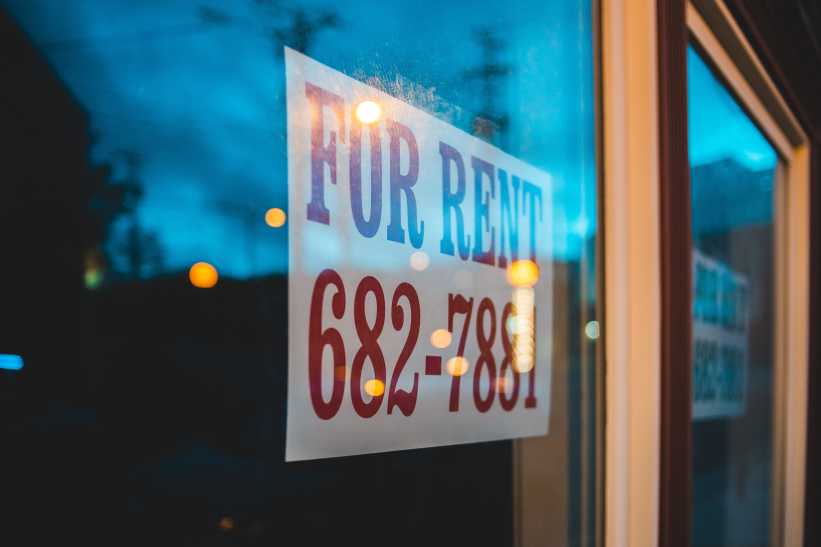“I’ve just got to buy a place of my own.” my daughter said to me recently. “It drives me crazy to keep paying rent and having nothing to show for it. I hate all that money going to my landlord.”. This seemingly logical argument is a common one, and it is still probably a major reason most of us become homeowners. Only later, after we’ve made the biggest financial commitment of our lives, do we realize our naiveté.
“All that money going to the landlord…” instead of lining our pockets now goes into repairs and maintenance, insurance and taxes, escalating utility bills, paint, wallpaper, carpeting, window coverings, and of course, all those indispensable tools and gadgets that line our garage walls and fill our tool boxes. The monthly cash flow we thought would go down actually goes up. And to make matters worse, we’ve taken on the responsibility of seeing to it that our neighborhood doesn’t deteriorate – we’ve got to protect our investment for that day some years in the future when we sell and hope to reap the benefits of an increase in value.
As homeowners, we know the errors of this “logic,” yet as small business owners, we continue to conjure similar faulty logic when it concerns ownership of the building in which our business operates.
“I’m sick and tired of constant lease increases, complying with the building owner’s picky issues about customer parking, delivery trucks, signs, storefront appearance, etc. But most of all, I’m tired of being told what I can and can’t do with my space. I’ll just buy or build my own building, be my own boss, and best of all, I’ll save a bundle on overhead.” Sound familiar? Unfortunately, this too is faulty reasoning for the small business owner, but for different reasons than for the homeowner.
When we invest in a home in a particular location and make constant improvements, the issues are largely emotional, but when we invest in housing for our business, the issues are almost entirely financial or at least should be viewed that way. Can we really lower our overhead, that is, charge ourselves less rent per square foot than is being charged in the marketplace for comparable space in a similar location? Probably not. If we do so, we are most likely reducing the financial return we receive on our commercial real estate investment (our equity) often to less than what we would receive for much safer insured CDs or bonds!
So, to make sense of owning our own business building, we must look at the decision more as an arms-length investment than as a reduction in landlord grief and overhead costs. Further, over time, in recognition of normal construction cost inflation that occurs, we should increase the rent we pay ourselves. If we don’t, and a disaster occurs that requires us to rebuild, the higher replacement cost will dictate an out-of-pocket investment considerably higher than the original one. Without increases in rent over time, how will we fund such increased equity?
Then, of course, we have the problem of liability. If a customer, an employee, or a delivery person slips on some ice and is injured and sues, should the business operation suffer the consequences or should only the building owner if it is the landlord’s responsibility to maintain the premises in a safe condition?
This issue of liability is one of the major reasons why most small business owners who also own their own building establish a separate business entity to own the real estate. Unfortunately, however, this prudent arrangement is often defeated because the building owner failed to observe the formalities of completing a signed lease agreement with the business owner (yes, frequently one and the same person acting in two different capacities) that includes standard liability provisions, cancellation clauses, rate adjustments, etc. Without such formalities, it’s not difficult, I’m told, for a reasonably competent attorney to legally pierce through the building ownership and attack the operating business owner as well.
Also, what if your business outgrows your building and needs to be moved to another location, or your business is unsuccessful and has to be closed, or you wish to sell the business but not the real estate, or vice versa? This forces you to view owning your business building in exactly the same manner as that “unreasonable” outside landlord you were trying to get away from in the first place! Now you’ll have to take into consideration such issues as location and neighborhood condition, continuous facility maintenance and improvement to keep up with competing commercial space should you need to lease your facility to an outsider or to sell it to a prospective purchaser, and you’ve got to be careful not to over or under spend on your facility.
So, you can see, in the final analysis, the decision to own your own business building is really a completely separate consideration from owning your own business. This becomes even more complicated when a special facility is needed, such as a restaurant, a manufacturing plant, a warehousing operation, an auto body, or a repair shop. But whoever said business ownership was simple? As Gilda Radner of Saturday Night Live said some years ago, “It’s always something!”
Related Post: Should You Rent or Own Your Business Real Estate?
Tuck Aikin was a former SCORE colleague of mine for many years until his retirement. Tuck is a prolific writer and wrote small business-themed articles for the Colorado Springs Gazette for many years. As a co-mentor, Tuck was my inspiration for me starting this blog. The preceding post is reproduced with permission from the author.












